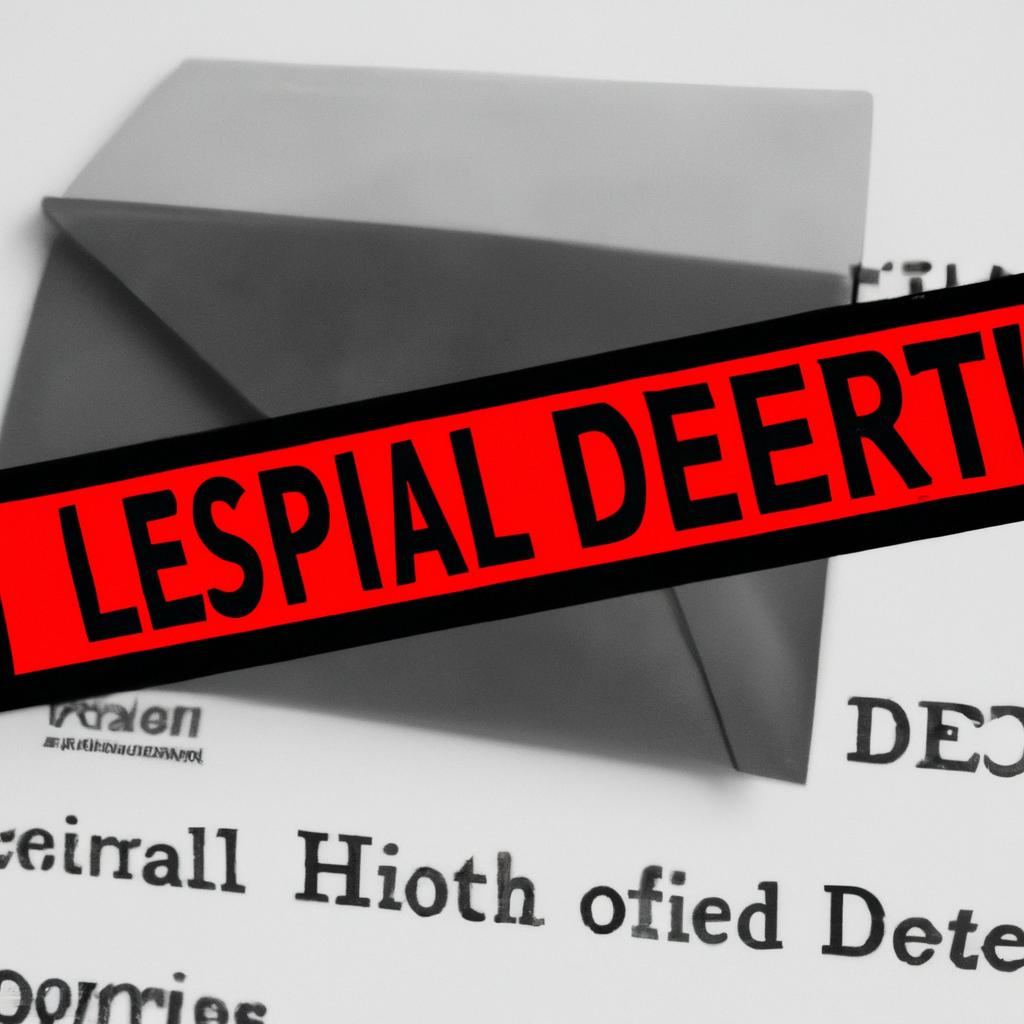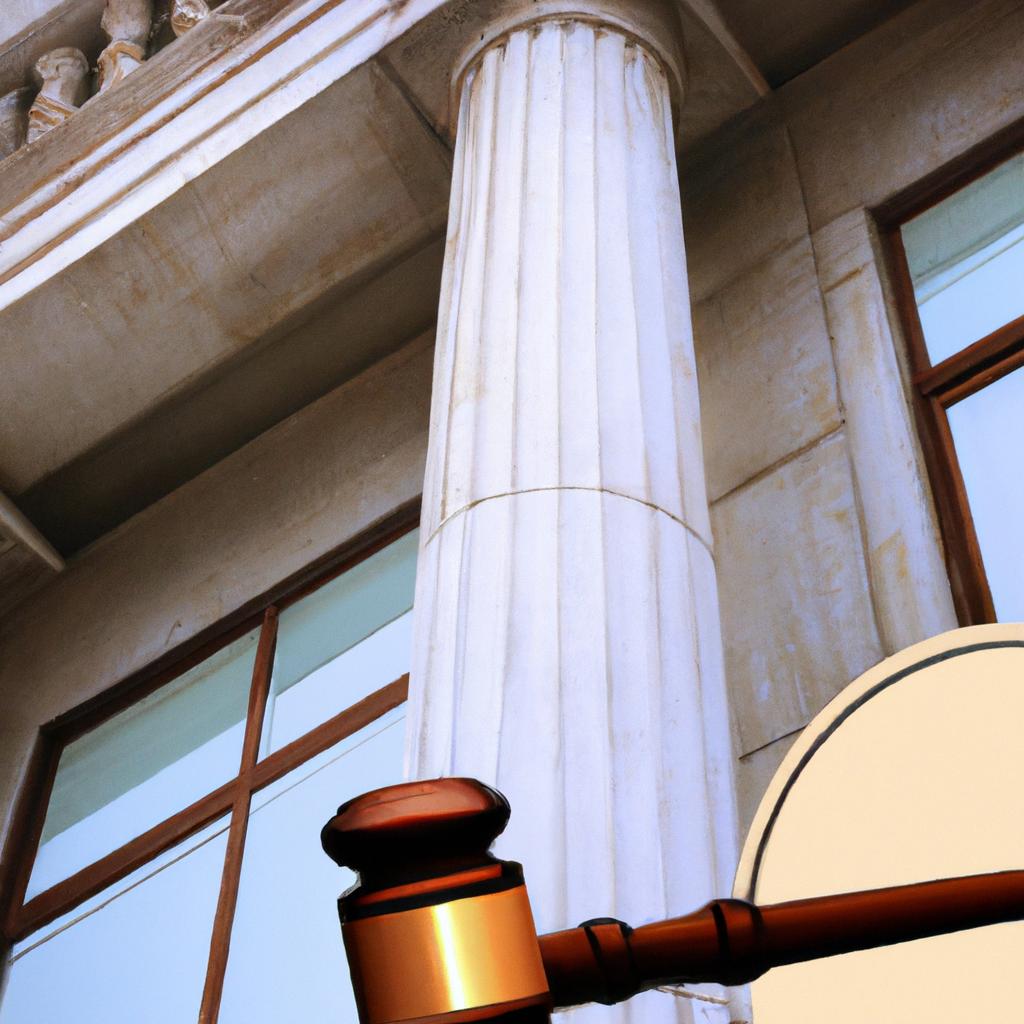In the intricate interplay of life and death, the United States Postal Service (USPS) plays a crucial role in assisting with the final affairs of decedents. When navigating the complexities of notifying the USPS of a loved one’s passing, understanding the proper protocols and procedures is paramount. At Morgan Legal Group, our seasoned attorneys specialize in estate planning, probate, elder law, Wills, and trusts, guiding clients through every facet of the legal process with precision and expertise. In this article, we delve into the essential steps and considerations involved in notifying the USPS of a death, ensuring that your loved one’s affairs are handled with care and diligence.
Notifying USPS of a Deceased Person
If you need to notify USPS of a deceased person, there are a few important steps to follow. First, gather the necessary documentation, including a copy of the death certificate and any relevant information about the deceased person’s mailing address. Next, contact the local post office where the deceased person received mail and inform them of the situation. You may need to provide proof of authority to act on behalf of the deceased person’s estate.
It’s crucial to update the deceased person’s mailing address with USPS to prevent any misdelivered mail or identity theft issues. Fill out a Change of Address form with USPS, indicating that the person has passed away. Additionally, consider forwarding any important mail to the executor or administrator of the deceased person’s estate. By taking these proactive steps, you can help ensure that the deceased person’s mail is handled properly and prevent any potential complications.

Procedures for Reporting a Death to USPS
When a loved one passes away, it is important to notify the United States Postal Service (USPS) of their death to prevent any mail from being sent to their address. Here are the :
1. Contact USPS Customer Service: Reach out to USPS Customer Service either by phone or online to inform them of the death. Provide the deceased person’s name, address, and date of death. This will ensure that no mail is delivered to the deceased person’s address.
2. Forward Mail: If the deceased person was receiving mail that needs to be forwarded to another address, you can set up mail forwarding through USPS. This will ensure that any important mail is redirected to the appropriate recipient. You can also request to hold mail for a specific period of time until arrangements are made.
| Service | Contact Details |
|---|---|
| USPS Customer Service | 1-800-275-8777 (Phone) Online Form (Website) |
| Mail Forwarding | Online Form (Website) or visit your local post office |

Legal Implications of Notifying USPS of Death
When a loved one passes away, there are many important tasks that need to be handled, including notifying various entities of their death. One crucial organization that should be informed is the United States Postal Service (USPS). Failing to notify the USPS of a death can have legal implications that could impact the deceased individual’s estate and any mail that continues to be delivered to their address.
Failure to notify the USPS of a death may result in important mail being delivered to the deceased individual’s address, potentially leading to issues such as identity theft or missed deadlines for important financial matters. It is important to promptly inform the USPS of a death to prevent any potential legal complications that may arise as a result of mail being sent to the deceased individual’s address. By following the proper procedures for notifying the USPS of a death, you can help ensure that the deceased individual’s estate is properly managed and their affairs are handled in accordance with the law.

Best Practices for Informing USPS about a Deceased Individual
When it comes to informing USPS about the passing of a loved one, it is essential to follow best practices to ensure a smooth process. Here are some steps to take when notifying USPS of a deceased individual:
- Collect Necessary Information: Gather the deceased individual’s name, address, date of birth, and date of death.
- Prepare Documentation: Have a copy of the death certificate ready to provide as proof of the individual’s passing.
| Important Contact Information: | |
|---|---|
| Name: | Morgan Legal Group |
| Location: | New York City |
| Services: | Estate planning, probate, elder law, Wills, and trusts |
Q&A
Q: How do I notify USPS of a death?
A: If you need to notify USPS of a death, you can contact their customer service department by phone or email.
Q: What information do I need to provide when notifying USPS of a death?
A: When notifying USPS of a death, you will need to provide the deceased person’s name, address, and date of birth, as well as your contact information.
Q: What happens to the deceased person’s mail after their death?
A: After a person’s death, their mail will be returned to the sender with a note indicating that the recipient is deceased.
Q: Can I have the deceased person’s mail forwarded to another address?
A: Yes, you can have the deceased person’s mail forwarded to another address by filling out a Change of Address form with USPS.
Q: Are there any special considerations for notifying USPS of a death?
A: It is important to notify USPS of a death as soon as possible to prevent the deceased person’s mail from piling up or being delivered to the wrong address.
Final Thoughts
In times of loss, navigating the process of notifying USPS of a loved one’s passing may seem like an overwhelming task. However, by following the steps outlined in this article, you can ensure that the necessary information is relayed to the postal service in a timely and respectful manner. Remember to reach out to USPS directly for any specific questions or concerns you may have during this difficult time. Our thoughts are with you as you navigate the necessary steps ahead.
 Losing a loved one is a heartbreaking experience and dealing with their final affairs can be overwhelming. Among the many overwhelming tasks associated with a loved one’s passing, one important step is notifying USPS of their death. This notification is crucial as it ensures that their mail is not delivered anymore and can help avoid cases of identity theft and fraud. In this article, we will discuss how to notify USPS of death and answer common questions related to this subject.
Losing a loved one is a heartbreaking experience and dealing with their final affairs can be overwhelming. Among the many overwhelming tasks associated with a loved one’s passing, one important step is notifying USPS of their death. This notification is crucial as it ensures that their mail is not delivered anymore and can help avoid cases of identity theft and fraud. In this article, we will discuss how to notify USPS of death and answer common questions related to this subject.
How Do I Notify USPS of Death?
Notifying USPS of a death is a simple process that can be done online or through traditional mail. Here’s a step-by-step guide on how to notify USPS of a loved one’s passing:
Step 1: Gather Required Information
Before notifying USPS, make sure you have all the necessary information. This includes the deceased’s full name, address, date of death, and social security number. You will also need your relationship to the deceased and your own contact information.
Step 2: Notify USPS Online
The fastest and most convenient way to notify USPS of a death is through their website. Simply visit the “Hold Mail” section of their website and fill out the required information. You will need to enter the deceased’s personal information and your own information as the contact person. You may also need to provide additional details, such as the date you would like the mail to be stopped and any specific instructions regarding the mail. Once you’ve completed the form, submit it and your request will be processed. Keep in mind that USPS may ask for additional proof of death before processing your request.
Step 3: Notify USPS by Mail
If you prefer to notify USPS by traditional mail, you can do so by sending a letter to your local post office. The letter should include the same information as the online form, such as the date of death, the deceased’s personal information, and your own contact information. It’s recommended to send the letter through certified mail to ensure it’s received by USPS.
Step 4: Follow-Up
After notifying USPS of a death, it’s a good idea to follow up with them to ensure that the mail delivery has been stopped. You can do so through their website or by contacting your local post office directly.
Frequently Asked Questions
1) Can I notify USPS of a death before it occurs?
Yes, it is possible to pre-notify USPS of a death if the person is terminally ill or not expected to live long. You can do so by filling out the “Hold Mail” form on their website and selecting the appropriate date for the mail to be stopped.
2) What happens to the mail after USPS is notified of a death?
Once USPS is notified, they will hold the mail and attempt to notify the sender that the addressee is no longer alive. If the sender is not notified, USPS will return the mail to the sender marked “deceased.”
3) Is there a deadline for notifying USPS of a death?
There is no specific deadline for notifying USPS of a death. However, it’s recommended to do so as soon as possible to avoid any potential issues with the deceased’s mail, such as identity theft or fraud.
4) Are there any fees for notifying USPS of a death?
No, there are no fees associated with notifying USPS of a death. This service is free of charge.
Benefits of Notifying USPS of a Death
Notifying USPS of a death is not only important for preventing identity theft and fraud, but it also has other benefits such as:
– Peace of mind knowing that the deceased’s mail will not be delivered to an unattended mailbox or potentially accessed by unauthorized individuals.
– It can help prevent any overdue bills or important documents from getting lost in the mail.
– Avoiding any unnecessary disturbances or reminders of the deceased’s passing.
Practical Tips for Notifying USPS of a Death
– If possible, notify USPS online as it is the fastest and most convenient option.
– Keep a record of the date and method you used to notify USPS.
– If you are not the executor of the estate or a family member, you may need to provide additional proof of death, such as a death certificate.
Firsthand Experience
“Losing my father was devastating, and dealing with his final affairs was overwhelming. One of the tasks I had to do was notify USPS of his passing. I opted to do it online, and it was a simple and hassle-free process. I was able to stop his mail delivery immediately, giving me one less thing to worry about during a difficult time.” – Jane Smith, New York, NY.
In Conclusion
Notifying USPS of a death is an essential step in finalizing a loved one’s affairs. It’s a simple process that can be done online or through traditional mail. By following the steps outlined in this article, you can ensure that your loved one’s mail is no longer delivered and help prevent any potential issues. Remember, it’s always better to take care of these tasks sooner rather than later to avoid any complications.











